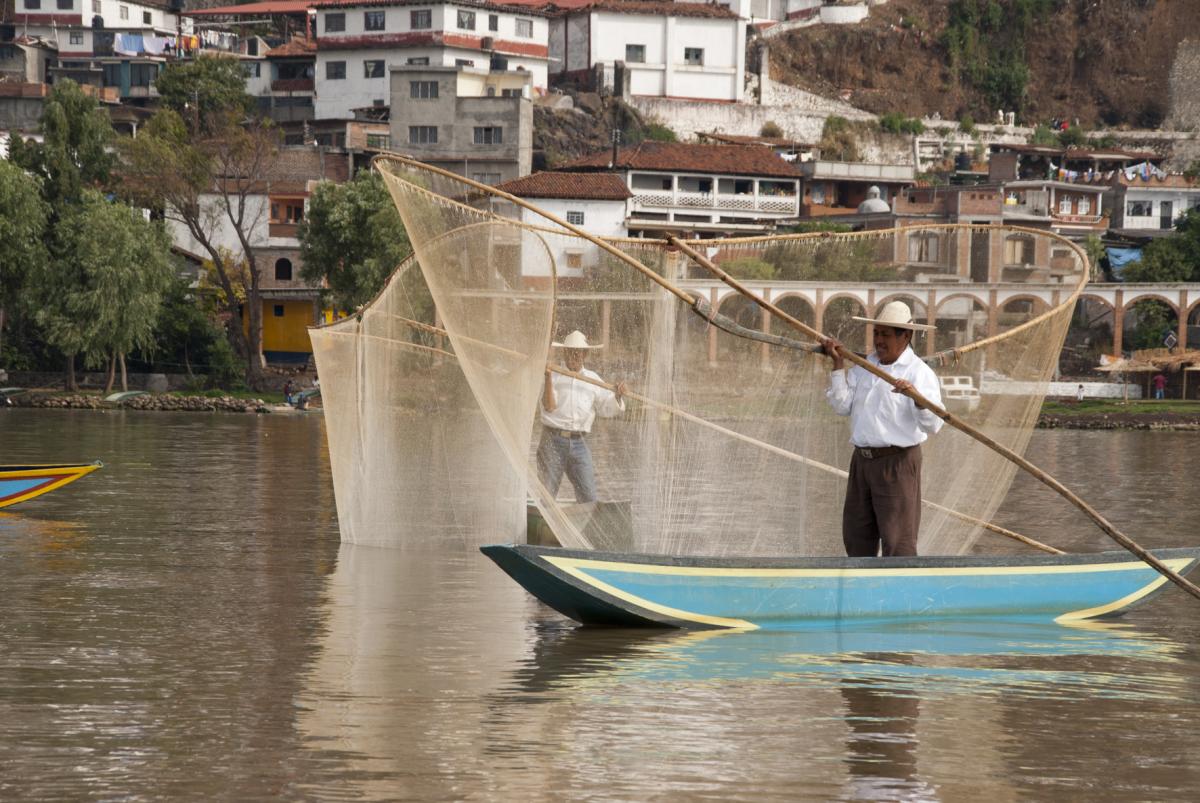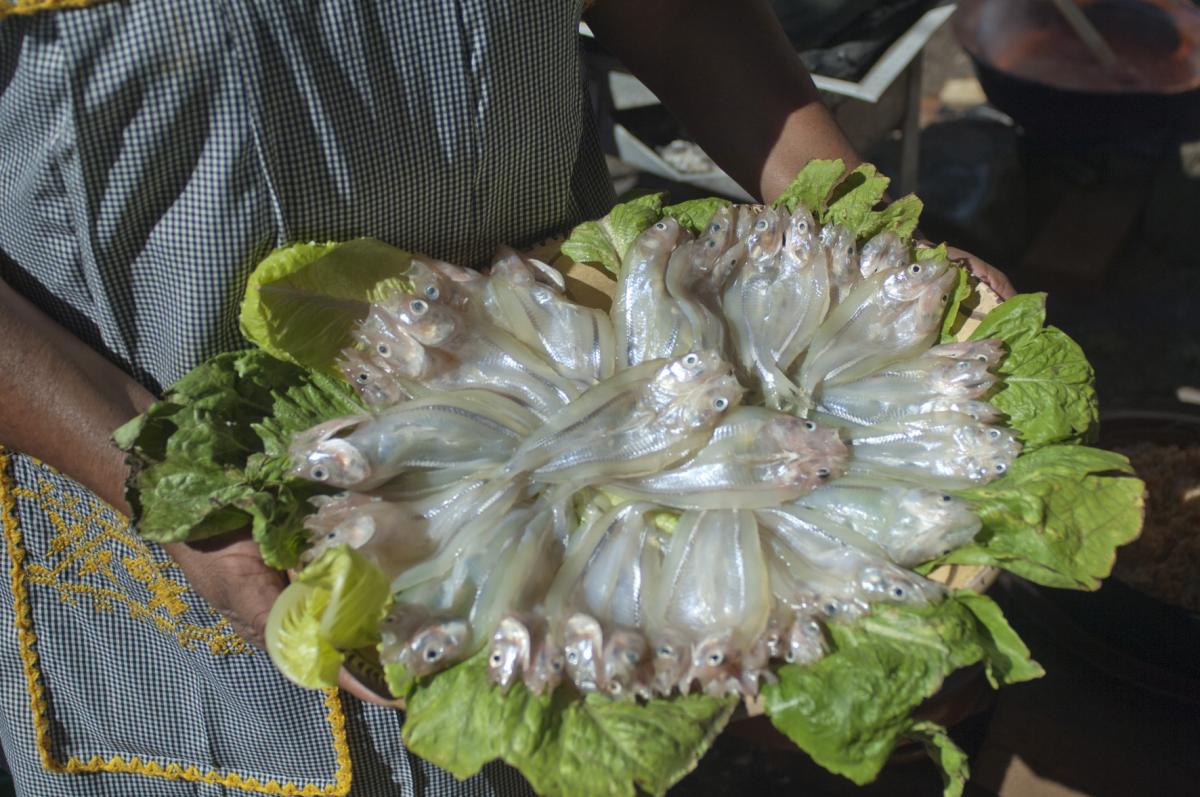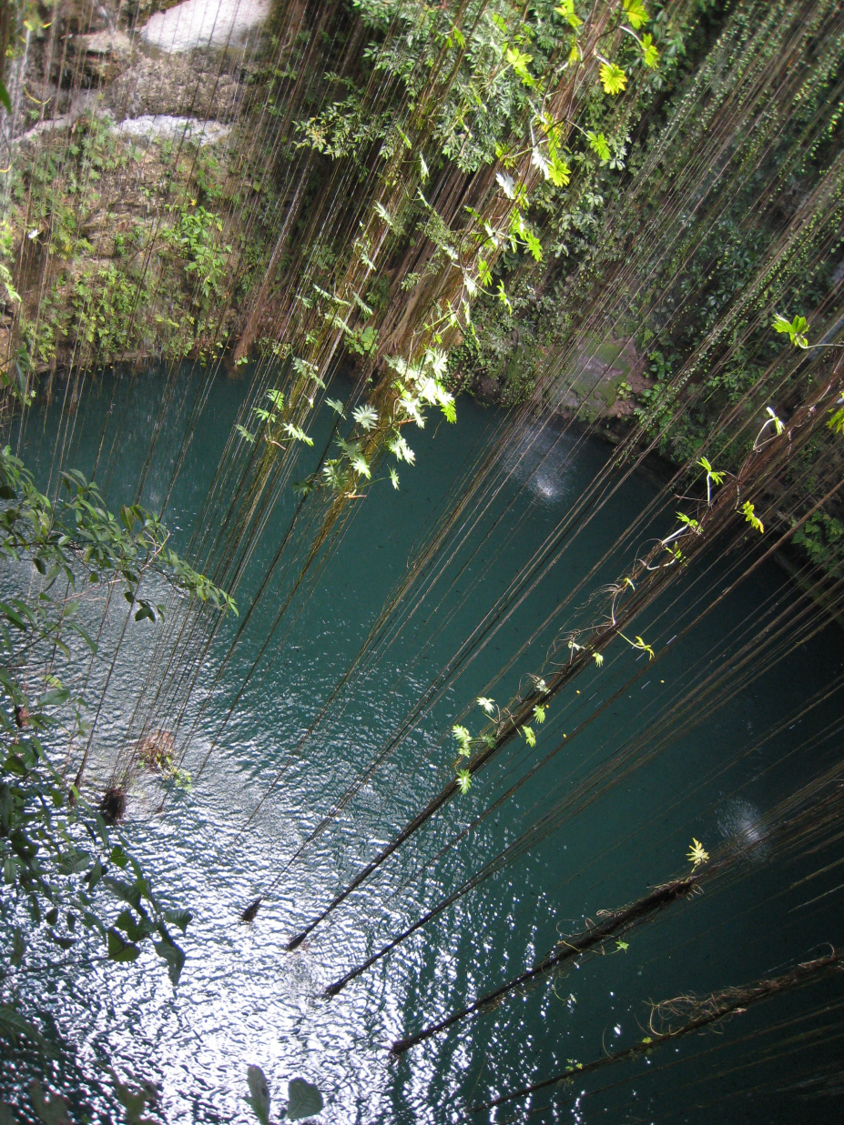Mexican freshwater biodiversity in decline as more than a third of fish species threatened with extinction – IUCN report
San José, Costa Rica, 15.05.2020 (IUCN) - Thirty-nine percent of Mexico’s freshwater fishes are threatened with extinction, including many endemic species that are economically, culturally and ecologically important, a new joint study led by the International Union for Conservation of Nature (IUCN) and the ABQ BioPark has found.
San José, Costa Rica, 15.05.2020 (IUCN) - Thirty-nine percent of Mexico’s freshwater fishes are threatened with extinction, including many endemic species that are economically, culturally and ecologically important, a new joint study led by the International Union for Conservation of Nature (IUCN) and the ABQ BioPark has found.
The Status and Distribution of Freshwater Fishes in Mexico report assessed the extinction risk of 536 species of freshwater fish, from the arid desert of northern Mexico to the southern tropical forests of the Yucatán Peninsula and Chiapas. It found that over a third of these species are threatened with extinction. Twelve species have previously gone Extinct, and an additional eight are Extinct in the Wild, remaining only in captivity.
Freshwater ecosystems and the animals they support are critical to providing clean water, food and livelihoods throughout Mexico. ‘Pescados blancos’, meaning ‘white fish’ in Spanish, comprises of species such as the Longjaw Silverside (Chirostoma lucius), Bigmouth Silverside (C. sphyraena) and Blacknose Silverside (C. promelas), which are all Endangered on the IUCN Red List of Threatened SpeciesTM. ‘Pescados blancos’ are deeply rooted in Mexican culture, having been traditionally harvested since before the Spanish conquest. These fishes are key components of Mexico’s iconic cuisine, considered to be Intangible Cultural Heritage by UNESCO. Their continued decline is likely to result in fishery collapse.
Major threats to these species include the loss of free-flowing rivers due to water management, over-extraction of water resources, pollution from agricultural runoff and untreated urban wastewater, and competition with introduced invasive alien species, the report found.
“These findings show a largely unrecognised and catastrophic loss of freshwater biodiversity within Mexico, which left unabated would deprive millions of people of a major food source and could have broad-reaching effects on entire ecosystems,” said Tim Lyons, Species Survival Officer at the ABQ BioPark and lead editor of the report. “Additional freshwater conservation initiatives from a broad range of stakeholders will be necessary to reverse this trend amidst an expanding human population, rapid urbanisation, and an increasing reliance on freshwater ecosystems for food, energy, and transportation.”
Desert spring systems such as the renowned oasis Cuatro Cienegas are experiencing severe declines in freshwater habitat due to unsustainable agriculture and drops in local water tables. Others, such as Manantial de El Potosí and Ojo de Agua la Presa in Nuevo León have dried up completely, losing all of their once rich endemic freshwater animals, including the brightly coloured Extinct Charco Azul Pupfish (Cyprinodon inmemoriam).
To address this situation, in June 2018 the Mexican government issued a series of landmark decrees establishing water reserves in nearly 300 river basins, to guarantee water supplies in the coming decades for numerous key areas.
“Many environmentally and economically valuable Mexican freshwater fishes are currently heading for extinction,” said Laura Máiz-Tomé, co-editor of the report and member of the IUCN Species Survival Commission. “Combined with political will and subsequent action, we hope the findings of this report will drive more sustainable land and water management and improved conservation planning to ensure the long-term survival of these unique species and the livelihoods that depend on them.”
Unfortunately, the loss of freshwater habitat is not limited to Mexico. Conservationists estimate that as much as 75% of the world’s inland wetlands were lost during the 20th century, and freshwater fauna has declined by an average 83% between 1970 and 2014.
Access the full embargoed report here.
For more information or interviews, please contact:
Nancy Arroyo, IUCN Media Relations, (506) 8306-3844, nancy.arroyo@iucn.org
Notes to Editors
This work is supported by the Toyota Motor Corporation and the New Mexico BioPark Society. We would like to thank ABQ BioPark for their support in the organisation of the Red List Review workshop and the publication of this report.
The IUCN Global Species Programme coordinated expert input, in particular the valuable contributions of the IUCN SSC Freshwater Fish Specialist Group and the Freshwater Conservation Committee, as well as assisted in project facilitation and provided input to the report.
We gratefully acknowledge the committed work of the Mexican and international ichthyologists who have provided expertise to this project.




